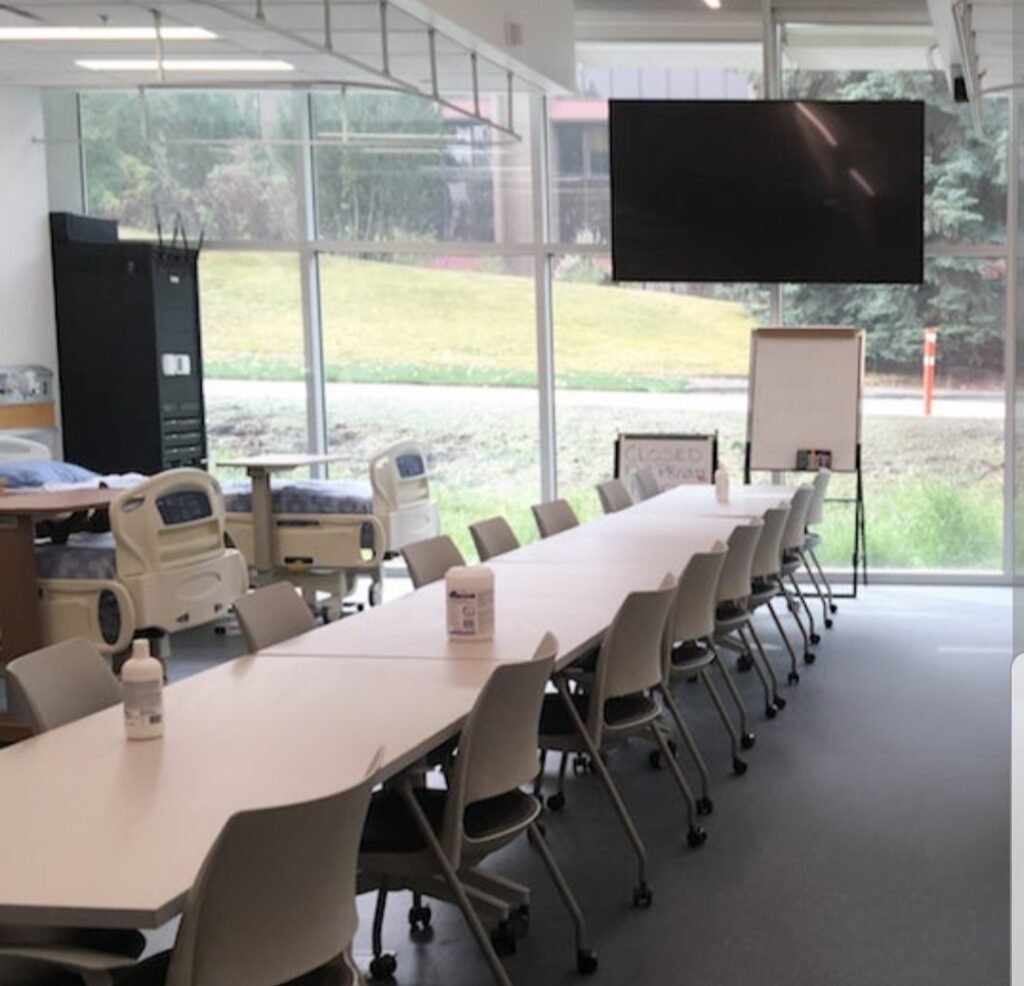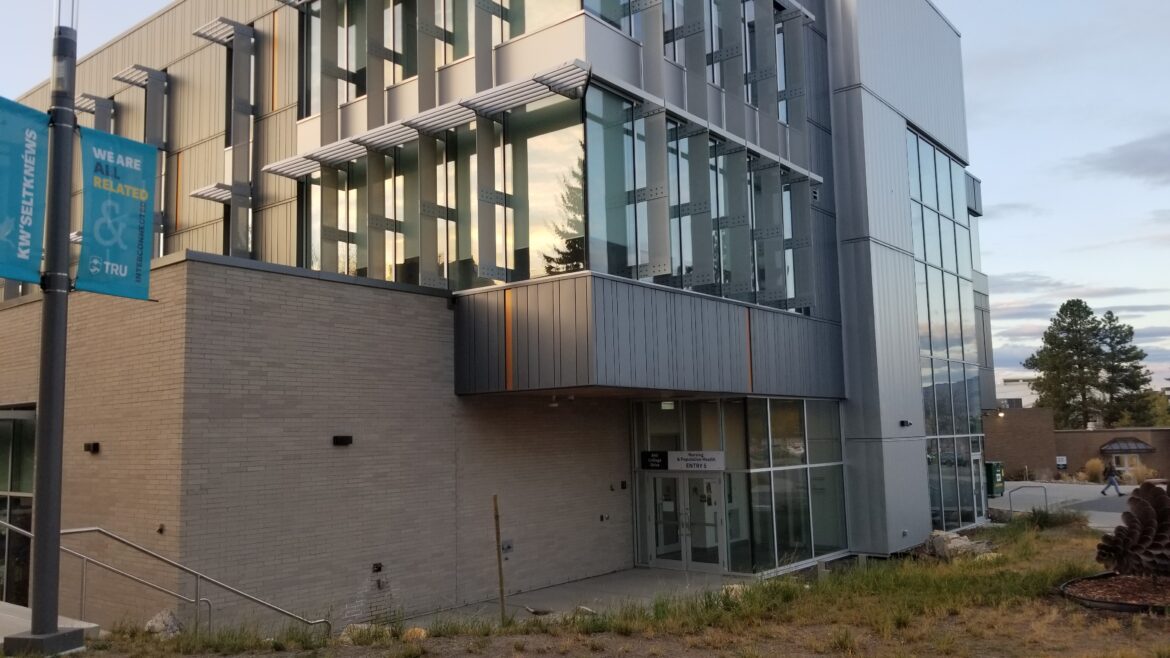A new wave of first-year Thompson Rivers University (TRU) nursing students is diving headfirst into immense pressure and stress as they face the national healthcare crisis that awaits them after graduation.
Nursing students face an extraordinary amount of pressure and stress within their program, with high demand and risk in their chosen profession but, in recent years, that pressure has increased. First-year nursing students at TRU are now going into a program that has been desperately trying to keep up during a healthcare crisis and pandemic for the last 3 years.
The ripple of Canada’s healthcare crisis has been felt by the country for years. The Interior Health District, including Royal Inland Hospital (RIH), is no exception. In 2022, the Canadian Federation of Nurses published a report stating that nursing job vacancies had increased by 219.8 percent since 2017. In the same year, RIH was struggling with a vacancy rate of 33 percent. RIH and Interior Health, however, have been working hard to try to catch up.
During her tour of RIH earlier this year, Susan Brown, Interior Health CEO, informed the press of a significant decrease in vacant job numbers at RIH, stating that they are down to 28 percent. This still means only 300 nursing job vacancies still stand. Some students working to graduate from TRU’s nursing program will be placed in those vacancies, along with other vacancies plaguing hospitals across the interior. In 2022, about 30 nursing students were hired at RIH upon graduating from TRU, according to an Interior Health Report.
“It’s an intense workload, you know? There’s a lot of reading and quizzes. A lot of students struggle with it,” said Hannah Glueck, a first-year Bachelor of Science in Nursing (BScN) student at TRU. “It causes a lot of burnout.” That student burnout becomes a major concern for many first-year nursing students. Young adults fresh out of high school are suddenly faced with intense academic requirements and as that student burnout brews, the reality of what they can expect upon graduation surfaces.
In grade 9, Glueck recalls, she shadowed her cousin, who is currently working as a registered nurse at Royal Inland Hospital. The connections to the patients and being able to help people are what drove her toward the nursing program and what motivated her to stay through all these added pressures.
“The stories we hear are really discouraging,” said Glueck. More first-year students are starting to want to avoid certain specialties they hear are experiencing more burnout and higher demand and, for some students, it’s just not worth it. “I think a lot of high school kids come into the program almost under false pretences. The workload and everything just starts getting to them, then they see all the burnout nurses are facing after graduating and they get second thoughts.”
The BScN is an extremely competitive program, designed specifically to produce capable healthcare professionals. High academic standards and stress are to be expected in such a high-risk and high-stress profession, but this means nursing students are at an increased risk of experiencing extreme burnout, especially when having to balance school with work and social lives as well. But thanks to the program staff, we may start seeing that stress ease.

Glueck, her classmates, and other first-year nursing students are finding that they have been seeing an increase in support from their professors, leads, and other students. Glueck mentioned the stories she heard as her cousin went through the program. “Some of my teachers are a lot more understanding about work and the course loads, I think… some try to be really accommodating with due dates.”
The increase in clinical work each year of the program, Glueck stated, also seems to be helping ease students’ anxieties about working in the high-demand and high-stress specialties. More support and encouragement from the program, especially as students enter the university straight out of high school, has helped a lot of students, including Glueck, manage stress better.
As professors and year leaders continue to help these first-years battle through university, they are hoping to encourage and build confidence in this next generation of nurses. Increased mental health resources, office hours, and accommodations are being offered by professors and staff to help students like Glueck. Glueck also mentions her own coping strategies, which include prioritizing, using TRU’s resources, and leaning on the support of her faculty and peers.
Going forward, Glueck’s dedication to helping people and having the opportunity to make unique connections with people will drive her to persevere through the intense and challenging program. She and her peers may be faced with insurmountable pressure, but as the resources and help being offered to them by the staff at TRU and RIH continue, students are finding the strength to push through the pressure, stress, anxiety, and burnout, in hopes of working towards an end to the healthcare crisis in the Interior. During this intense time, Glueck and her peers are grateful for the support from their family, friends, mentors and community.




Hi,
For the image, you could have shown more details about the facilities at TRU.